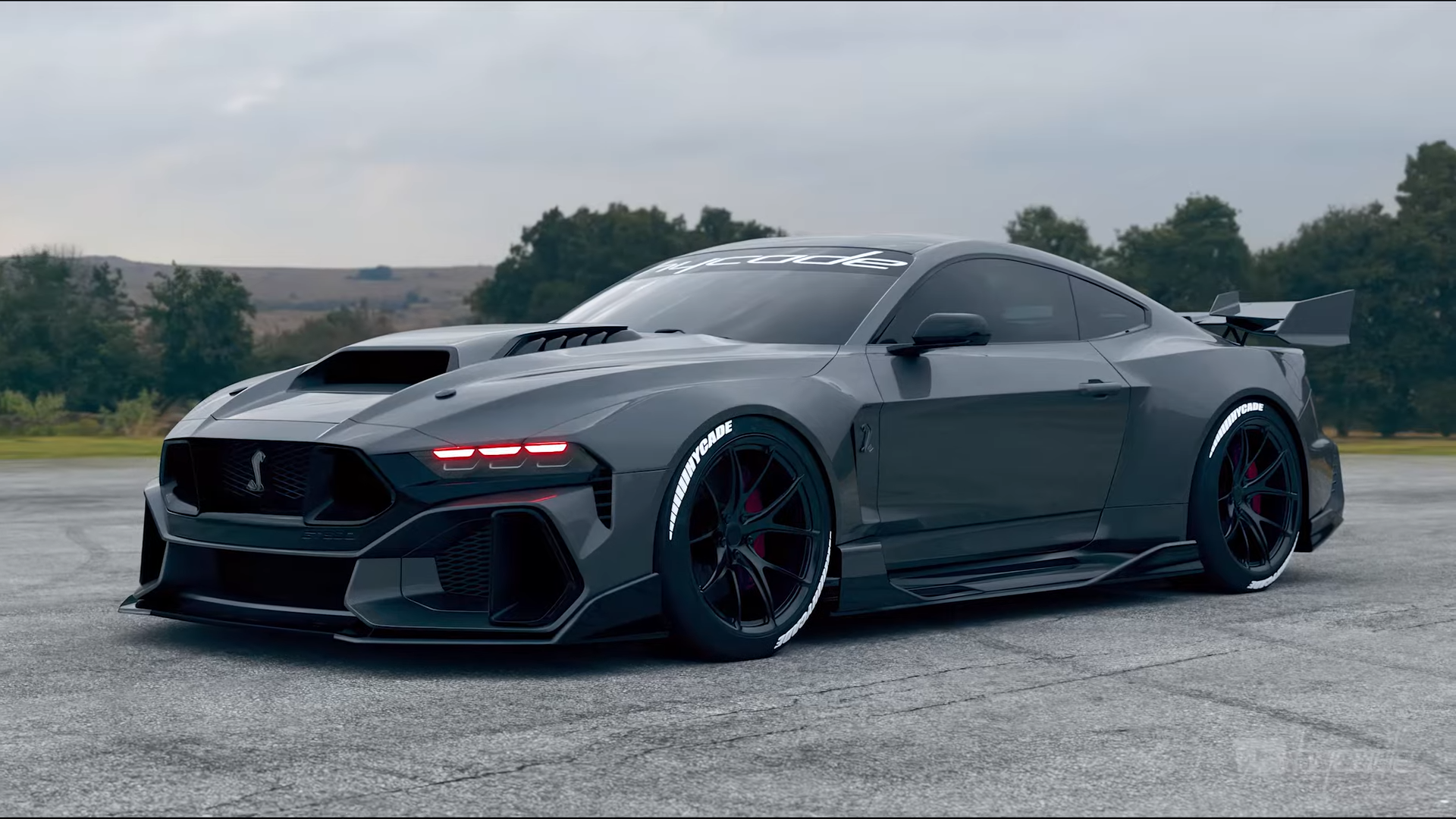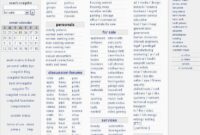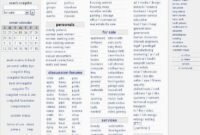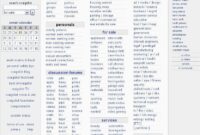Custom Classic Pickup Trucks For Sale: Your Ultimate Guide to Owning a Rolling Masterpiece pickup.truckstrend.com
The roar of a V8 engine, the gleam of perfectly polished chrome, and the timeless lines of a vintage truck — for many, the allure of a classic pickup is undeniable. But what happens when that nostalgia meets modern performance and bespoke style? You get a Custom Classic Pickup Truck For Sale, a unique automotive segment where history is reimagined, and individuality takes center stage. These aren’t just old trucks; they are meticulously crafted machines, blending the charm of yesteryear with the reliability, comfort, and power of contemporary vehicles.
This comprehensive guide will navigate the exciting world of custom classic pickup trucks, offering insights into what makes them so special, what to look for when buying, and how to find your perfect rolling masterpiece.
Custom Classic Pickup Trucks For Sale: Your Ultimate Guide to Owning a Rolling Masterpiece
What Defines a Custom Classic Pickup?
A custom classic pickup truck is more than just a restored vintage vehicle. While a restoration aims to return a vehicle to its original factory specifications, a custom build transforms it, often incorporating modern components and bespoke touches while retaining its iconic classic aesthetic. This transformation can manifest in several ways:
- Resto-Mods: Perhaps the most popular category, resto-mods (restoration + modification) meticulously restore the vehicle’s classic exterior and interior while integrating modern mechanicals. This often includes engine swaps (like a powerful LS or Coyote V8), updated transmissions, modern suspension (coil-overs, air ride), disc brakes, and creature comforts like air conditioning, power steering, and advanced infotainment systems. The goal is a vintage look with modern driveability.
- Pro-Touring: Focused on performance, pro-touring trucks are built to handle like modern sports cars. They feature aggressive suspension setups, high-performance brakes, powerful engines, and often wider wheels and tires. While still classic in appearance, their primary aim is spirited driving.
- Street Rods/Hot Rods: These customs emphasize a stripped-down, performance-oriented look, often with visible engines, chopped tops, and exaggerated styling. While more common with cars, hot rod trucks also exist, pushing boundaries of design and power.
- Lifted/Off-Road Customs: For those who prefer dirt over pavement, classic trucks are often customized with lifted suspensions, large tires, and robust four-wheel-drive systems, transforming them into capable and stylish off-roaders.
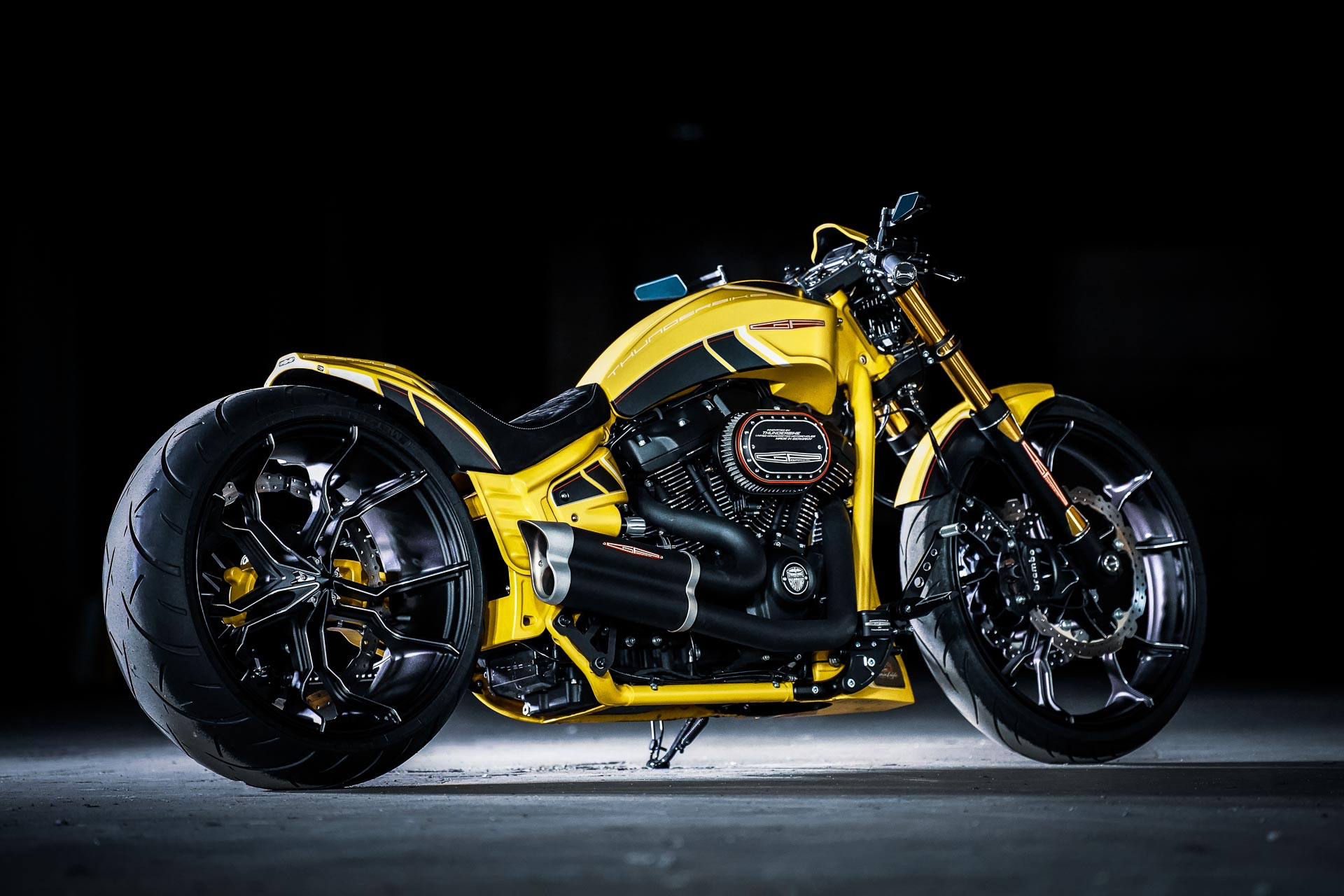
Common classic models that serve as the foundation for these customs include the timeless Ford F-Series (F-1, F-100, F-150), Chevrolet C/K series (C10, C20), Dodge D-Series, and even international classics like Toyota Land Cruisers and Nissan Patrols.
Why Buy a Custom Classic Pickup?
The appeal of a custom classic pickup extends far beyond mere transportation. Here’s why they captivate so many enthusiasts:
- Unparalleled Style and Individuality: In a world of mass-produced vehicles, a custom classic pickup stands out. Each build is unique, reflecting the vision of its creator. You won’t pull up next to another one just like it at a stoplight.
- Improved Performance and Reliability: Modern engine swaps, advanced suspension, and braking systems transform these trucks from cumbersome vintage machines into vehicles that can keep pace with contemporary traffic, offer a comfortable ride, and stop on a dime. You get the best of both worlds: classic looks with modern capability.
- Enhanced Comfort and Convenience: Gone are the days of sweating in traffic or wrestling a heavy steering wheel. Many custom builds integrate modern air conditioning, power steering, power windows, comfortable seating, and even Bluetooth audio, making them genuinely enjoyable to drive daily.
- Investment Potential: A well-executed custom build, especially one using quality components and professional craftsmanship, can hold or even increase its value over time. Unlike new vehicles that depreciate rapidly, a desirable custom classic can be a tangible asset.
- Show and Cruise Appeal: These trucks are magnets for attention. Whether at a local car show, a cruise-in, or just driving around town, a custom classic pickup garners smiles, thumbs-up, and conversations wherever it goes.
- The Joy of Driving: There’s a visceral connection to the road that a classic vehicle offers, which is amplified when it has modern power and handling. It’s an experience that new cars simply can’t replicate.


Key Considerations Before Buying Your Dream Custom Pickup
Purchasing a custom classic pickup is an exciting endeavor, but it requires careful consideration. Here’s what to keep in mind:
- Budget: Custom classic trucks vary wildly in price, from mild customs in the $30,000-$50,000 range to six-figure, professional show-quality builds. Define your budget early and stick to it. Remember to factor in potential post-purchase maintenance, insurance, and transportation costs.
- Purpose: Will this be a daily driver, a weekend cruiser, a show truck, or an occasional hauler? Your intended use will dictate the level of customization, comfort, and performance you need.
- Level of Customization: Are you looking for a fully finished, turn-key custom, or are you open to a partially completed project where you can add your personal touch? A finished truck is more expensive upfront but saves time and potential headaches. A project can be cheaper but demands significant time, skill, and additional investment.
- Engine and Drivetrain: The heart of any custom. LS-series engines (from GM) and Ford Coyote engines are popular swaps for their power, reliability, and aftermarket support. Research the specific engine, transmission, and rear end. Ask about mileage on the swapped components.
- Suspension and Brakes: Modern suspension (coil-overs, air ride) vastly improves ride quality and handling. Four-wheel disc brakes are a must for safety and performance in a powerful custom.
- Interior Amenities: Check for air conditioning, heating, power windows, power steering, modern gauges (e.g., Dakota Digital), and a quality sound system. Ensure all features work correctly.
- Body and Paint Quality: This is where many builds shine or fall short. Inspect for rust (especially in common areas like cab corners, floor pans, bed, and fenders), poor panel alignment, wavy bodywork, and paint imperfections (orange peel, fisheyes, chips). A professional paint job is costly, so quality here is paramount.
- Undercarriage Inspection: Get underneath the truck. Look for rust on the frame, quality of welds, proper routing of wiring and brake lines, and any signs of leaks or damage.
- Documentation and History: Ask for build sheets, receipts for parts and labor, and any service records. This documentation can verify the quality of components and the professionalism of the build.
- Pre-Purchase Inspection (PPI): This is non-negotiable. Hire a reputable, independent mechanic specializing in classics or customs to thoroughly inspect the vehicle. They can identify hidden issues that an untrained eye might miss.
Where to Find Custom Classic Pickups For Sale
The market for custom classic pickups is vibrant and diverse. Here are the best places to begin your search:
- Specialized Classic Car Dealerships: Many dealerships focus exclusively on classic and custom vehicles. They often have high-quality inventory, offer warranties (rarely, but possible), and handle title transfers smoothly.
- Online Marketplaces & Auction Sites:
- Bring a Trailer (BaT): Known for curated, high-quality listings and an engaged community that provides extensive commentary. Auctions are competitive but transparent.
- eBay Motors: A vast marketplace with a wide range of customs, from projects to finished builds. Be cautious and thorough with your research.
- Hemmings Motor News: A long-standing resource for classic car sales, both online and in print. Features classifieds and dealer listings.
- ClassicCars.com / AutoTrader Classics: Large aggregators of classic vehicle listings from private sellers and dealerships.
- Facebook Marketplace & Specialty Groups: Many active Facebook groups are dedicated to specific classic truck models (e.g., "C10 For Sale," "F100 Customs"). Great for finding private sellers and community insights.
- Live Auctions: Reputable auction houses like Mecum Auctions and Barrett-Jackson frequently feature stunning custom classic pickups. This can be an exciting way to buy, but be prepared for fast-paced bidding and buyer’s premiums.
- Car Shows and Swap Meets: Attending local and national classic car shows is a fantastic way to see custom trucks in person, talk to owners, and sometimes find trucks for sale directly from their builders or enthusiasts.
- Word-of-Mouth: Networking within the classic car community can sometimes lead to hidden gems not publicly advertised.
The Buying Process: A Step-by-Step Guide
- Define Your Criteria: Solidify your budget, preferred make/model, desired level of customization, and must-have features.
- Research & Comparison: Browse listings, compare prices, and study what similar trucks with similar features are selling for. Understand market value.
- Initial Contact & Questions: Reach out to sellers. Ask for more photos/videos (especially of the underside, engine bay, and interior), detailed information about the build, maintenance history, and reasons for selling.
- In-Person Inspection: If the truck passes initial scrutiny, arrange to see it in person. Take your time. Bring a checklist. Look for signs of rust, poor bodywork, leaks, and electrical issues.
- Professional Pre-Purchase Inspection (PPI): This is crucial. Even if you’re knowledgeable, a professional can spot issues you might miss.
- Test Drive: Evaluate how the truck drives. Listen for unusual noises, check braking, steering, and transmission shifts. Test all accessories.
- Negotiation: Armed with your research and PPI results, negotiate the price. Be polite but firm.
- Documentation & Payment: Ensure the title is clear and matches the VIN. Understand the payment method (wire transfer, cashier’s check).
- Transportation: Arrange for insured transport, especially if buying out of state.
Common Customization Trends and Features
- Modern Engine Swaps: LS (GM) and Coyote (Ford) V8s are king for their power, reliability, and vast aftermarket support.
- Air Ride Suspension: Allows for adjustable ride height, from slammed for show to comfortable for cruising.
- Performance Brakes: Four-wheel disc brakes from companies like Wilwood or Baer are standard for safety.
- Custom Wheels and Tires: Large diameter wheels (18-22 inches) with performance tires are common.
- Dakota Digital Gauges: Modern, digital instrument clusters that fit classic dashboards.
- Vintage Air AC Systems: Integrated air conditioning and heating that looks period-correct but performs like new.
- Updated Interiors: Custom upholstery (leather, high-quality cloth), modern seating, sound deadening, and updated sound systems.
- LED Lighting: Modern LED headlights and taillights for improved visibility and a contemporary touch.
Potential Challenges and Solutions
- Overpaying: Solution: Thorough market research and a professional PPI are your best defenses.
- Poor Quality Builds: Some customs are built by amateurs or with cheap parts. Solution: Inspect craftsmanship meticulously, check for proper wiring, clean welds, and quality components. Ask about the builder’s reputation.
- Hidden Mechanical Issues: A shiny paint job can hide a multitude of sins. Solution: A comprehensive PPI by a specialist.
- Parts Availability: While popular customs have great aftermarket support, some unique builds might use obscure parts. Solution: Research parts availability for the specific components used in the build.
- Insurance: Standard auto insurance may not cover a custom classic’s agreed-upon value. Solution: Seek specialized classic car insurance providers (e.g., Hagerty, Grundy) who offer "agreed value" policies.
- Maintenance: While modern components are reliable, custom builds can sometimes require specialized knowledge for maintenance and repairs. Solution: Find a trusted mechanic familiar with both classic vehicles and modern performance modifications.
Price Table: Custom Classic Pickup Trucks For Sale (Estimated Ranges)
| Make/Model (Example) | Level of Customization | Key Features | Estimated Price Range (USD) | Notes/Considerations |
|---|---|---|---|---|
| 1967-1972 Chevrolet C10 | Mild Custom | Modernized Interior, Disc Brakes, Repaint, Mild Engine Updates | $35,000 – $60,000 | Good entry point. May still have original frame/suspension. Focus on solid bodywork and clean interior. |
| 1967-1972 Chevrolet C10 | Resto-Mod | LS Swap, Air Ride/Coil-overs, 4-Wheel Disc, Modern Interior, High-Quality Paint | $60,000 – $120,000+ | Highly sought-after. Prices vary based on builder reputation, quality of components, and level of finish. "Show quality" builds can exceed $150k. |
| 1953-1956 Ford F-100 | Resto-Mod | Coyote Swap, Independent Front Suspension, Power Steering/Brakes, Custom Chassis | $70,000 – $150,000+ | Iconic "fat fender" look. Often involve significant chassis modifications for modern drivetrains. Premium for high-end builds. |
| 1973-1987 Chevrolet C/K | Pro-Touring/Squared Body | Performance LS/Big Block, Full Chassis, Race Suspension, Track-Ready | $80,000 – $180,000+ | Focused on performance handling. Less common as true "pro-touring" but gaining popularity. High-end components are standard. |
| 1947-1954 Chevrolet 3100 | Hot Rod/Street Rod | Chopped Top, Exposed Engine, Custom Frame, Stripped Interior | $50,000 – $100,000+ | More niche, emphasizes raw power and unique styling. Condition of original bodywork is key. |
| 1966-1977 Ford Bronco | Resto-Mod/Off-Road | Ford 5.0L/Coyote, 4×4 Upgrades, Custom Interior, Modern Suspension | $80,000 – $200,000+ | Extremely popular and expensive. High demand drives prices. Look for professional frame-off restorations and meticulous details. |
| 1960-1966 Ford F-100 | Mild Custom/Driver | Lowered Suspension, V8 Swap (non-LS), Refinished Interior, Solid Paint | $40,000 – $75,000 | "Slick-side" F-100s are gaining traction. Good balance of classic looks and modern updates without the extreme cost. |
Note: Prices are highly variable based on condition, quality of the build, components used, builder’s reputation, and market demand.
Frequently Asked Questions (FAQ)
Q: How much does a custom classic pickup truck typically cost?
A: Prices vary widely, from around $35,000 for a mild custom driver to well over $150,000 for a professionally built, show-quality resto-mod. The cost depends on the base vehicle, the extent of customization, the quality of parts, and the craftsmanship.
Q: Are custom classic pickups reliable enough for daily driving?
A: Many well-built custom classic pickups, especially resto-mods with modern engine swaps (like LS or Coyote) and updated mechanicals, are highly reliable and can certainly be daily driven. They offer modern comfort and performance while retaining classic aesthetics.
Q: How do I insure a custom classic pickup?
A: Standard auto insurance policies may not adequately cover the unique value of a custom classic. It’s highly recommended to seek out specialized classic car insurance providers (e.g., Hagerty, Grundy, American Modern) who offer "agreed value" policies. This ensures you’re compensated for the vehicle’s true worth in case of damage or loss.
Q: What’s the difference between a "resto-mod" and a "hot rod"?
A: A resto-mod aims to maintain the original aesthetic and classic lines of the vehicle while integrating modern performance, comfort, and reliability components. A hot rod often involves more radical modifications, sometimes sacrificing comfort or practicality for extreme performance or a highly stylized, stripped-down look.
Q: Should I buy a finished custom truck or a project?
A: Buying a finished custom truck is generally more expensive upfront but saves you immense time, effort, and the potential for unforeseen costs. A project truck is cheaper to acquire but requires significant mechanical skill, a large budget for parts, and a lot of patience. Unless you have the expertise, time, and resources, a finished truck is usually the better option for first-time buyers.
Q: What are the most popular classic trucks to customize?
A: The Chevrolet C10 (1967-1972 and 1973-1987 "square bodies") and the Ford F-Series (especially the 1950s F-100s and 1960s/70s F-100s/F-150s) are consistently among the most popular due to their timeless designs, strong aftermarket support, and availability of donor vehicles. Ford Broncos are also extremely popular.
Conclusion
The market for custom classic pickup trucks for sale represents a unique confluence of automotive history, personal expression, and modern engineering. These vehicles offer the best of both worlds: the undeniable charm and character of a bygone era, seamlessly blended with the performance, reliability, and comfort of a contemporary machine.
Whether you’re drawn to the raw power of a pro-touring build, the refined elegance of a resto-mod, or the rugged appeal of a custom off-roader, thorough research, careful inspection, and a clear understanding of your needs are paramount. Investing in a custom classic pickup is more than just buying a vehicle; it’s acquiring a piece of rolling art, a conversation starter, and an experience that will bring joy and pride for years to come. With the right approach, you can find the perfect custom classic truck that not only turns heads but also delivers an unforgettable driving experience.
